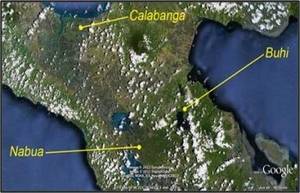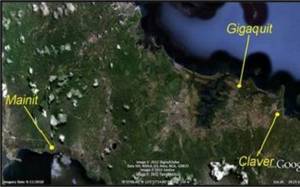Component 3: Enhancing livelihoods to adapt to climate change
Component 3 involves a community-based approach to identify, test and evaluate adaptation options that increase the ability of vulnerable groups to deal with the impact of climate change on food security.
These adaptation options were tested and evaluated in the Camarines Sur (Bicol Region) and Surigao del Norte (Caraga Region) provinces of the Philippines.
The results of the bottom-up assessments in this component were analyzed in conjunction with that of Component 1 (top-down assessment) to come up with an additional set of livelihood adaptation options for further testing.
- Identification, validation, field-testing, and evaluation of good adaptation practices in the local context through participatory processes and capacity development under the framework of Farmer Field Schools.
- Field-testing sites are Camarines Sur and Surigao del Norte with drought, flooding and saline intrusion issues.
Local partners:
Department of Agriculture Regional Field Unit No.5 (DA RFU 5, Bicol), Regional Field Unit 13 (DA RFU 13, Caraga), Philippine Rice Research Institute (PhilRice), Agusan del Nord, and the Department of Agriculture Agricultural Training Institute (DA ATI).
|
|
|---|---|
Barangays selected for implementation of Component 3 in Camarines Sur Province (Bicol Region) | Barangays selected for implementation of Component 3 in Surigao del Norte Province (Caraga Region) |
Examples of good practices for climate change adaptation in agriculture
- Early warning systems
- Rainwater harvesting
- Rice-fish culture
- Rice-duck farming
- Elevated grain storage house
- Use of early maturing varieties
- Backyard tilapia raising
For related reports go to our Resources section.


